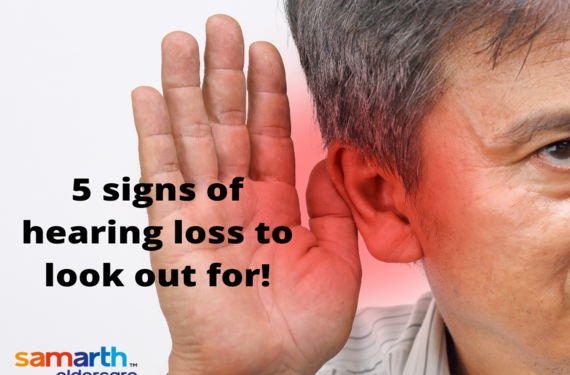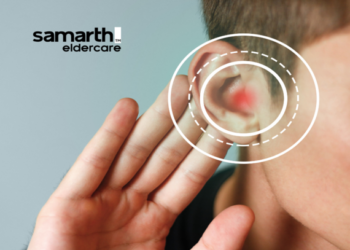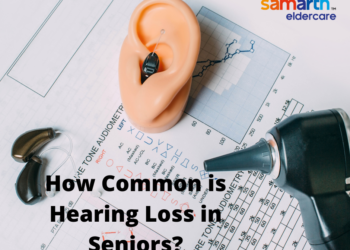Presbycusis is the medical term given to hearing loss caused by old age. Studies have shown that one in five people over 60 is afflicted with some sort of hearing problem. Interestingly, our own community survey revealed that up to 60–70% of seniors experience some degree of hearing loss. Seniors suffering from presbycusis often do not realise it, due to the gradual nature of the condition. Below are five signs of hearing loss you should not ignore, along with medical conditions that may also contribute to hearing problems.
1.You find it hard to make out certain sounds
With age, it can become difficult to distinguish certain sounds, especially high-pitched ones like “sh” or “th”. Dr Sujana Chandrasekhar, M.D., based in New York, says, “When you can hear vowels but not consonants, it sounds like people aren’t speaking clearly, so it’s easy to blame them.”

Join Now >
2. Trouble following conversations
It is quite common to pick up cues from others while conversing—facial expressions, lip-reading, and context all help us follow a conversation, especially if you’re hard of hearing. Often, this is done subconsciously. However, during the pandemic, widespread mask usage removed many of these helpful cues, making it harder to understand conversations than before.
3. People are telling you to turn down volume of the TV or music you’re listening to
This is something that can be done innocently, but if others often ask you to lower the volume of the television or music, it may be worth discussing with your doctor. Alternatively, you might find yourself straining to follow what’s being said on the TV, especially when watching with others.
4. Talking on the phone is harder than before
In face-to-face conversations, sound typically enters both ears. However, on the phone, sound usually enters only one ear. This can make it more difficult to hear clearly, especially if the phone is held to the ear with more hearing loss.
5. Some sounds are too loud
The phenomenon where certain sounds seem louder than normal and can startle you easily is called ‘recruitment’. This occurs when not all the hair cells in the ear are lost at the same time. As a result, when a sound is louder than usual, the remaining healthy cells respond more strongly than they typically would.
Medical Conditions which May Lead to Hearing Loss
Certain medical conditions are also linked to hearing loss. For instance, a study in the United States found that hearing loss is twice as common in people with diabetes compared to those without the condition.
High blood pressure, or hypertension, can damage blood vessels throughout the body, including those that supply blood to the ears. Research indicates that people with high blood pressure have a higher incidence of hearing loss.
Osteoporosis, though less commonly associated with hearing loss, may also play a role. The condition causes bones to become softer or more brittle, including those in the ear, potentially affecting hearing.








